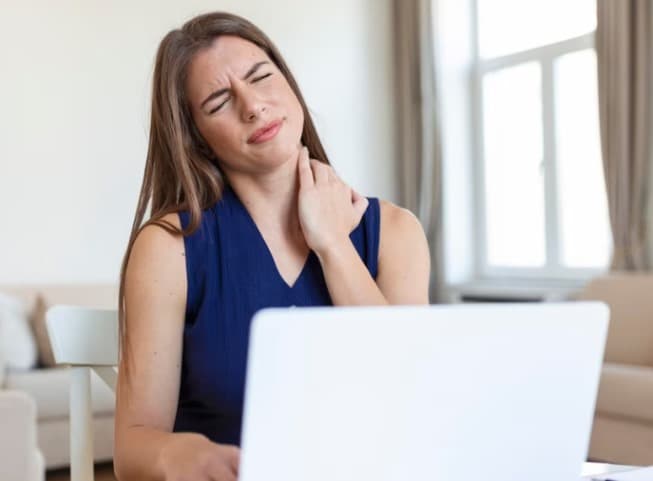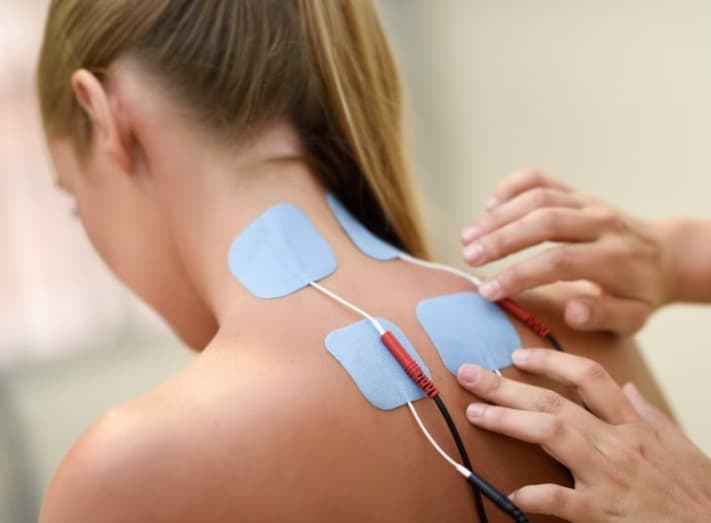Neck pain can be a common and bothersome issue that many people experience. It can range from mild discomfort to severe pain, and it can significantly affect daily activities. One particular situation that often causes neck pain is when you turn your head.
When you experience neck pain upon turning your head, it can be frustrating and limit your range of motion. Understanding the reasons behind this discomfort is crucial for finding effective solutions. In this article, we will explore various causes of neck pain when turning the head and discuss possible treatment options.
Causes of Neck Pain when Turning the Head
To comprehend why your neck might hurt when you turn your head, it’s essential to understand the neck’s anatomy. The neck consists of seven vertebrae, which are interconnected by discs, ligaments, and muscles. These structures support the head’s weight and allow for flexible movement.
Neck pain when turning the head can have various causes, including:
Muscle Strain
One common cause of neck pain is muscle strain. This occurs when the muscles in the neck become overstretched or torn due to sudden movements or poor posture. Straining the neck muscles can result in pain, stiffness, and difficulty when turning the head.
Whiplash Injury
Whiplash is a neck injury commonly associated with car accidents. It happens when the head is forcefully thrown back and forth, causing the neck’s soft tissues to stretch beyond their limits. Turning the head can exacerbate the pain and discomfort associated with whiplash.
Cervical Spondylosis
Cervical spondylosis is a degenerative condition that affects the neck’s vertebrae and discs. As we age, the discs between the vertebrae gradually wear down, leading to bone spurs and narrowing of the spinal canal. When you turn your head, the affected vertebrae may compress the nerves, resulting in neck pain.
Pinched Nerve
A pinched nerve in the neck can occur when the surrounding structures put pressure on a nerve root. This compression can lead to radiating pain that worsens when you turn your head. Pinched nerves may result from herniated discs, bone spurs, or spinal stenosis.
Torticollis
Torticollis, also known as wry neck, is a condition characterized by an abnormal tilt of the head. It can cause pain and difficulty when turning the head due to muscle spasms or stiffness. Torticollis may be congenital or acquired and can vary in severity.
Poor Posture
Maintaining poor posture for extended periods can strain the neck muscles and lead to discomfort when turning the head. Slouching or holding the head in an awkward position puts undue stress on the neck, resulting in pain and restricted movement.
Stress and Tension
Stress and tension can manifest physically in various ways, including neck pain. When you are under stress, your muscles may become tense and tight, causing discomfort when you try to turn your head. Managing stress through relaxation techniques can help alleviate this type of pain.
Degenerative Disc Disease
Degenerative disc disease is a condition that affects the spinal discs, causing them to lose elasticity and cushioning. As a result, the vertebrae may rub against each other, causing pain and restricted movement, particularly when turning the head.
Treatment Options for Neck Pain
The treatment for neck pain when turning the head depends on the underlying cause. Here are some common treatment options that your healthcare provider may recommend:
- Rest and Ice: In cases of muscle strain or minor injuries, resting the neck and applying ice packs can help reduce pain and inflammation.
- Heat Therapy: Heat therapy, such as warm compresses or heating pads, can provide relief for muscle spasms and increase blood flow to the affected area.
- Physical Therapy: Physical therapy exercises and techniques can help strengthen the neck muscles, improve range of motion, and alleviate pain.
- Medications: Over-the-counter pain relievers, such as nonsteroidal anti-inflammatory drugs (NSAIDs), may be recommended to manage pain and reduce inflammation. In some cases, muscle relaxants or prescription pain medications may be necessary.
- Exercise and Stretching: Engaging in regular exercises and stretching routines can improve neck flexibility, strengthen muscles, and prevent future episodes of pain.
- Posture Correction: Correcting poor posture habits and maintaining proper ergonomics while working or engaging in daily activities can alleviate neck pain and prevent its recurrence.
- Stress Management Techniques: Practicing stress management techniques, such as deep breathing, meditation, or yoga, can help relax tense muscles and reduce neck pain associated with stress and tension.
Prevention Tips for Neck Pain
Preventing neck pain when turning the head is possible by following these tips:
- Maintain good posture throughout the day.
- Use ergonomic equipment, such as supportive chairs and pillows.
- Take regular breaks and stretch during prolonged periods of sitting or computer use.
- Avoid sudden, jerky movements of the neck.
- Engage in regular exercise to strengthen the neck muscles.
- Practice stress management techniques to reduce tension and muscle tightness.
FAQs
Can neck pain when turning the head be a sign of a serious condition?
In some cases, neck pain when turning the head may indicate a more serious underlying condition. It is advisable to seek medical attention if the pain is severe, worsens, or is accompanied by other symptoms such as numbness or weakness.
Are there any exercises to relieve neck pain when turning the head?
Yes, certain exercises and stretches can help relieve neck pain. Consult with a physical therapist or healthcare professional to learn specific exercises suitable for your condition.
How long does it take for neck pain to resolve?
The duration of neck pain recovery varies depending on the underlying cause, severity of the condition, and individual factors. Mild cases may resolve within a few days to weeks, while more chronic or complex conditions may require longer treatment and management.
Are there any natural remedies for neck pain when turning the head?
Some natural remedies, such as applying heat or cold packs, practicing relaxation techniques, and maintaining good posture, can help alleviate neck pain.

